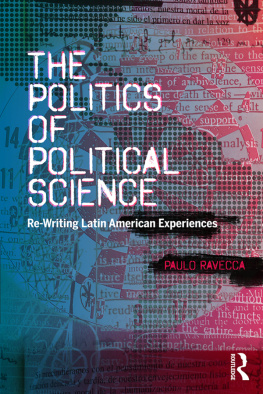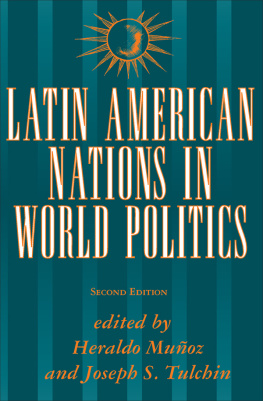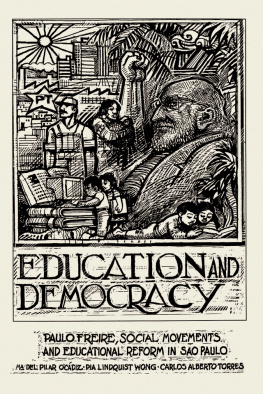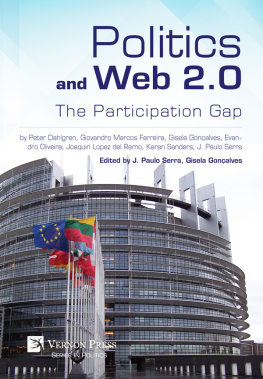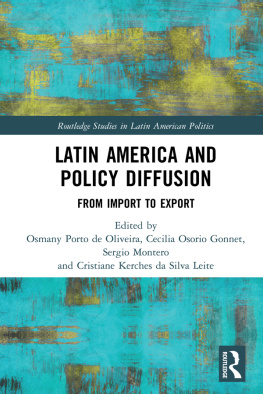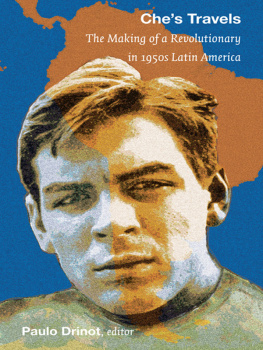The Politics of Political Science
In this thought-provoking book, Paulo Ravecca presents a series of interlocking studies on the politics of political science in the Americas.
Focusing mainly on the cases of Chile and Uruguay, Ravecca employs different strands of critical theory to challenge the mainstream narrative about the development of the discipline in the region, emphasizing its ideological aspects and demonstrating how the discipline itself has been shaped by power relations. Ravecca metaphorically charts the (non-linear) transit from cold to warm to hot intellectual temperatures to illustrate hisalternativenarrative. Beginning with a detailed quantitative study of three regional academic journals, moving to the analysis of the role of subjectivity (and political trauma) in academia and its discourse in relation to the dictatorships in Chile and Uruguay, and arriving finally at an intimate meditation on the experience of being a queer scholar in the Latin American academy of the 21st century, Ravecca guides his readers through differing explorations, languages, and methods.
The Politics of Political Science: Re-Writing Latin American Experiences offers an essential reflection on both the relationship between knowledges and politics and the political and ethical role of the scholar today, demonstrating how the study of the politics of knowledge deepens our understanding of the politics of our times.
Paulo Ravecca is Assistant Professor in the Department of Political Science at the Universidad de la Repblica, Uruguay, where he researches epistemology and the history of political science; critical theories (queer, neo-Marxist, postcolonial, and poststructural approaches); political economy and international relations; and gender and sexuality. He is an associate editor of the Journal of Narrative Politics and Crtica Contempornea. Revista de Teora Poltica. He holds a PhD in Political Science from York University.
First published 2019
by Routledge
52 Vanderbilt Avenue, New York, NY 10017
and by Routledge
2 Park Square, Milton Park, Abingdon, Oxon OX14 4RN
Routledge is an imprint of the Taylor & Francis Group, an informa business
2019 Paulo Ravecca
The right of Paulo Ravecca to be identified as author of this work has been asserted by him in accordance with sections 77 and 78 of the Copyright, Designs and Patents Act 1988.
All rights reserved. No part of this book may be reprinted or reproduced or utilised in any form or by any electronic, mechanical, or other means, now known or hereafter invented, including photocopying and recording, or in any information storage or retrieval system, without permission in writing from the publishers.
Trademark notice: Product or corporate names may be trademarks or registered trademarks, and are used only for identification and explanation without intent to infringe.
British Library Cataloguing-in-Publication Data
A catalogue record for this book is available from the British Library
Library of Congress Cataloging-in-Publication Data
A catalog record for this book has been requested
ISBN: 978-0-8153-6307-1 (hbk)
ISBN: 978-0-8153-6308-8 (pbk)
ISBN: 978-1-351-11055-6 (ebk)
Typeset in Times New Roman
by Apex CoVantage, LLC
This is a book full of people. My gratitude is colossal and ineffable.
For helping me to untangle academia and its powers, I thank my interviewees: Adolfo Garc, Alberto Mayol, Alfonso Donoso, Alfredo Joignant, Alfredo Rehren, lvaro Rico, Andreas Feldmann, Anthony Pezzola, Carlos Durn, Carlos Fortn, Carlos Huneeus, Carmen Midaglia, Claudia Heiss, Claudio Fuentes, Daniel Buquet, Daniel Chasquetti, David Altman, Diego Rossello, Eugenio Guzmn, Francisco Daz, Gerardo Caetano, Hugo Frhling, Jacques Ginesta, Jaime Baeza, Jaime Yaff, Javier Gallardo, Jorge Landinelli, Jorge Lanzaro, Jos Miguel Busquets, Jos Viacava, Juan Andrs Moraes, Juan Carlos Gmez Leyton, Julin Gonzlez Guyer, Julieta Surez, Laura Gioscia, Leonardo Letelier, Lorena Oyarzn, Luca Selios, Luis Senatore, Marcelo Mella, Mara de los ngeles Fernndez Ramil, Mara Ester Mancebo, Mara Francisca Quiroga, Marisa von Blow, Mnica Tagle, Nicols Bentancur, Niki Johnson, scar Landerretche, Pablo Bulcourf, Patricio Navia, Pedro Narbondo, Roberto Durn, Rodrigo Egaa, Romeo Prez Antn, Rossana Castiglioni, Stphanie Alenda, Toms Chuaqui, and Umut Aydin; also Germn Parula, who shared his views on academia and its political role in Uruguay.
I have so many treasured memories from my years in the Department of Political Science at York University in Toronto. Courses and professors left deep marks in this text: Andil Gosine, Asher Horowitz, Carlota McAllister, Esteve Morera, Hannes Lacher, Liisa North, Shannon Bell, Steven Hellman, as well as Anna Agathangelou and Ananya Mukherjee-Reed, who provided extraordinary support in the first steps of the project. I am grateful to many friends whose presence in Toronto enriched my thinkingand life, among them: Art Babayants, Balca Arda, Carmen Sanchez, Carmen Teeple Hopkins, Cory Jansson, Enrique Lpez de Mesa, Gkbr Sarp Tanyldz, Hide Miyagawa, Jan Anderson, Jessica Parish, Johannah May Black, Jordi Diez, Juan Marsiaj, Karl Dahlquist, Nadia Hasan, Nausheen Quayyum, Nishant Upadhyay, Ruth Felder, Sarah LeBlanc, Sarah Naumes, Shelley Liebembuk, Thomas Chiasson-LeBel, and Vilma Filici. The Church and Wellesley yoga community was a space for healing and joy: the word yoga appears twice in a study about knowledge and power because of you. Ana Mara Arajo, Anabel Rieiro, Carla lvarez, Ccile Casen, Carmen Dangiolillo, Denisse Rodriguez, Doris Hajer, Fortunato Morales, Gonzalo Ghio, Ins Ksiazenicki, Juan Andrs Bresciano, Leonardo Carrin Eguiguren, Luca Tiscornia, Marcelo Rossal, Mara Eugenia Jung, Mara Gravina, Mara Jos Vega, Pablo Liddle, Raquel Lubartowski, Sofa Schuster, Sol Montero, Soledad Morales, Susana Mallo, and Valeria Mura also nurtured, in different moments and ways, the journey of this book.
In addition to my interviewees, several colleagues at the Instituto de Ciencia Poltica have supported this project: Ana Laura De Giorgi, Camilo Lpez Burin, Cecilia Rocha, Diego Sempol, Florencia Anta, and Marcela Schenck. I will highlight one colleague: Pedro Narbondo, who passed away in 2015, leaving a legacy of critical thinking, a sharp sense of humor, and a suspicion of neoliberalism (his emphasis). I am grateful to Federico Traversa, Luca Selios, and Vernica Prez, also from my current department, as well as to Diego Hernndez and Mariana Mosteiro for their guidance in the construction of the database of academic articles employed in . Special thanks to Marcos Segantini for (re)teaching me SPSS. Beln Villegas, Camila Zeballos, and Mariana Mancebo helped me with the data analysis. Mariana also provided important support throughout the research phase.
The Research Group on the History of Political Science of the Latin American Political Science Association (ALACIP) and the Research Committee 33: The Study of Political Science as a Discipline of the International Political Science Association (IPSA) have both been good venues to share this research and to get feedback. Special thanks to Arturo Fernndez, Bob Reinalda, Cecilia Lesgart, Emily Hauptmann, Enrique Gutirrez Mrquez, Erkki Berndtson, Hctor Zamitiz, Joo Feres, John E. Trent, Julin Caicedo, Karla Valverde Viesca, Katarzyna Krzywicka, Michael B. Stein, Nastassja Rojas Silva, Nelson Cardozo, Robert Adcock, Sergio ngel Baquero, Thibaud Boncourt, and Victor Alarcn Olgun. Juan Pablo Luna provided useful comments on previous versions of .


